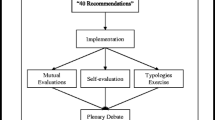
Overview
- First to explain the existential crisis at Lloyd’s of London in the 1980s
- Provides the first comprehensive scholarly account of the public and political reaction to the Lloyd’s crisis
- Offers a lesson about the dangers posed to complex financial systems from entrenched beliefs in competence of experts
Part of the book series: Palgrave Studies in Economic History (PEHS)
Access this book
Tax calculation will be finalised at checkout
Other ways to access
About this book
This book examines the crisis at the famous insurance market, Lloyd's of London, during the late twentieth century, which nearly destroyed the 300-year-old institution. While rapid structural change resulting from system collapse is less common in insurance than in the history of other financial services, one exception was the Lloyd’s crisis. Hitherto, explanations of the crisis have focused on the effects of catastrophic losses and poor governance. By drawing on contemporary accounts of the crisis, the author constructs the first comprehensive scholarly analysis of the public and political response. The book applies theoretical concepts from behavioural economics and economic psychology to argue that multiple delusions of competence were at work both within and outside the Lloyd’s market. Arrogance, elitism and defence of vested interests comprised endogenous elements of the crisis. Entrenched ideas about the virtues of self-regulation and faith in insider experts also played a role. The result was a misdiagnosis by both insiders and politicians of what ailed Lloyd’s and a series of reforms that failed to address the underlying causes of its disease. This book offers a salutary lesson from recent history about the importance of the transparency, accountability and effective monitoring of financial institutions. It is of interest to academics and students of economic and financial history, business, insurance, political economy and history.
Similar content being viewed by others
Keywords
Table of contents (10 chapters)
-
Front Matter
-
Back Matter
Authors and Affiliations
About the author
Robin Pearson is Professor of Economic History at the University of Hull, UK. He has published widely on British and international economic and business history, with a particular focus on insurance.
Bibliographic Information
Book Title: Delusions of Competence
Book Subtitle: The Near-Death of Lloyd’s of London 1970--2002
Authors: Robin Pearson
Series Title: Palgrave Studies in Economic History
DOI: https://doi.org/10.1007/978-3-030-94088-1
Publisher: Palgrave Macmillan Cham
eBook Packages: Economics and Finance, Economics and Finance (R0)
Copyright Information: The Editor(s) (if applicable) and The Author(s), under exclusive license to Springer Nature Switzerland AG 2022
Hardcover ISBN: 978-3-030-94087-4Published: 10 February 2022
eBook ISBN: 978-3-030-94088-1Published: 09 February 2022
Series ISSN: 2662-6497
Series E-ISSN: 2662-6500
Edition Number: 1
Number of Pages: XI, 136
Number of Illustrations: 2 b/w illustrations, 2 illustrations in colour
Topics: Economic History, Financial History, Behavioral/Experimental Economics, Economic Psychology



